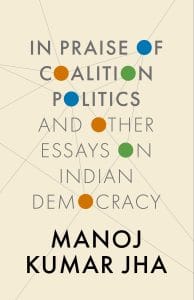To understand the moral and political core of a society, one need not look to its laws or its leaders. One need only look inside its prisons. In India, prisons have long been less about justice and more about locking up the poor, the defiant and the dispensable. Here, caste, religion, poverty and dissent collide with brute force. Incarceration has increasingly become not a matter of individual guilt or innocence, but of one’s identity, one’s politics or simply one’s place in the social hierarchy.
The idea of compassion—long held as the moral foundation of any justice system—has been evacuated from our public and legal discourse. Whether we consider the Covid-19 pandemic, which laid bare the state’s indifference to the lives of undertrial prisoners, or the normalized use of extraordinary laws against student activists and human rights defenders, what emerges is a system designed to humiliate, isolate and forget. In a polity increasingly marked by majoritarianism, the question is no longer ‘What did you do?’ but ‘Who are you?’ The answer determines whether you will ever be free again. The use of law as a weapon against the most vocal and most disadvantaged citizens shows that the systematic refusal of empathy is a feature, and not a bug, of our democracy.
Who Is Incarcerated in India?
Indian prisons do not merely reflect the criminal justice system; they reproduce the deep inequalities of the social order. While the state continues to speak the language of law, order and public safety, the data reveals something more disturbing: that incarceration in India disproportionately targets those already marginalized—by caste, by religion and by economic class.
As per the Prison Statistics India 2022 report of the National Crime Records Bureau (NCRB)—the latest at the time of writing—Dalits (Scheduled Castes), Adivasis (Scheduled Tribes) and Other Backward Classes together make up close to 70% of the prison population. Muslims, who comprise roughly 14% of the Indian population, account for over 17% of all prisoners—and a staggering 19.3% of all undertrials. This skew cannot be explained by crime patterns alone. It reflects deeper systemic biases in policing, arrest, trial and bail procedures.
These numbers are not incidental. They are the product of what sociologists have called ‘structural criminalization’—where marginalized communities are more likely to be stopped, searched, arrested, denied bail and held as undertrials. In fact, India has one of the highest proportions of undertrial prisoners in the world. Over 75% of those in custody have not been convicted of any crime (as per the executive summary of the 2022 report). They’re not in jail because they’ve been proven guilty, but because they’re too poor to get bail, have no one to fight their case and don’t matter enough for anyone to care.
The overlap between poverty and incarceration is glaring.
Many of those languishing in jails are accused of petty offences, held in default of bail sureties as low as Rs 5,000. Even when courts grant bail, the lack of familial or institutional support means that prisoners remain inside for months—or years. As the pandemic revealed, even in the face of a deadly health emergency, prison decongestion was governed not by vulnerability or risk, but by the ‘category of offence’—with little regard for the actual health condition of the prisoner.
Caste and religion amplify this precarity. Dalit and Adivasi accused often suffer abuse and custodial violence that is under-reported and rarely punished. Muslim prisoners, particularly those arrested under terrorism or sedition-related charges, spend years as undertrials, only to be acquitted after a decade or more—by which time their lives have been irreparably destroyed. The acquittal in 2014 of several Muslim men who were imprisoned for more than a decade in the 2002 Akshardham case is a sobering reminder that freedom withheld compounds the effects of justice delayed, and thus denied.
In short, the crisis of compassion in Indian prisons is not an aberration. It is an extension of the social contract—but only for some of us. It cages not the guilty, but the unprotected. And its walls are lined with the silence of the many who are locked up not to correct behaviour, but to keep them in their place.
 This excerpt from Manoj Kumar Jha’s ‘In Praise of Coalition Politics’ has been published with permission from Speaking Tiger Books.
This excerpt from Manoj Kumar Jha’s ‘In Praise of Coalition Politics’ has been published with permission from Speaking Tiger Books.






